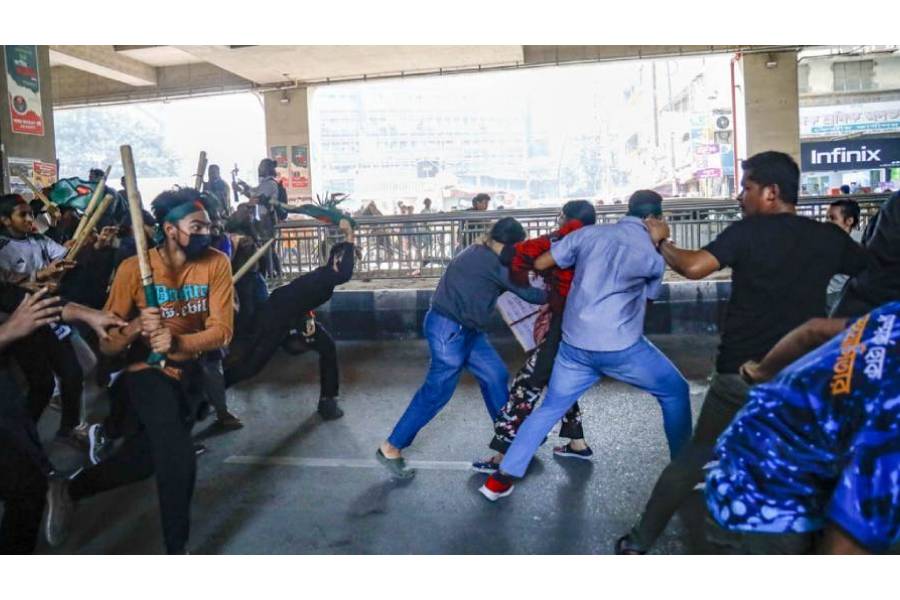
Published :
Updated :

The Transparency International, Bangladesh (TIB), The Chittagong Hill Tracts (CHT) Commission, the Ganotantrik Odhikar Committee and a student group have voiced their concern about as well as severely criticised the attacks on peacefully protesting indigenous people on Wednesday and the students who protested that attack on Thursday. But the TIB also charged that the National Curriculum and Textbook Board (NCTB) has acted as the rehabilitation centre of authoritarianism by dropping out the graffiti containing the word 'Adibasi' (indigenous) from the back cover of the textbooks of class IX and X. The graffiti was drawn by students during the July-August uprising embodying the vision of a diverse and inclusive Bangladesh. Indeed, the NCTB has no right to betray the vision of students and act like the fallen autocrats who first deprived the indigenous people of their identity as 'Adibasi'.
When venomous violence was unleashed on the peaceful processionists on Wednesday under the nose of the police, the agency did not show the slightest inclination to intervene and protect the indigenous people. But the next day the police suddenly rediscovered their aggression they amply demonstrated against demonstrators including July-August protestors under the previous intolerant government. They used their truncheons liberally on the students who protested the attacks on the indigenous processionists. Even the home adviser drew flak because of the police's role on that day and there was even a demand for his resignation.
Both attacks smack of autocratic mindset. The interim government's passivity in terms of dealing with such sensitive and highly important issues on a priority basis is also glaringly exposed. There is no reason to think that the NCTB could drop out the graffiti from the textbooks without a nod from the government or if it did, it should have been made accountable for this inordinate exercise of authority. With hardly an excellent record to boast during the one and a half decades, the NCTB has miles to go before it can overcome its ill reputation of the past. Incorrigibility is not going to help its or the nation's cause in this critical time. It has to respect the very spirit that has sought to bring about a seismic change in the socio-political order of the country.
Can it be that a group could swoop on the peaceful procession of the indigenous people because they are disparate and weak minorities among the minority communities? The police also felt that those who took to the street to raise their voice against the attack on the Adibasis were on the wrong side of the court! Or, else they would not dare make a flagrant exhibition of their past brutality. Had the student coordinators of the anti-discrimination movement made their sentiment known against the Wednesday's attack, the law enforcers would not pluck the courage to apply such excessive force against the protesting students. A police official tried to justify the law enforcers' brutal action by stating that the force asked the demonstrators to send a three-member team of representatives for submission of a memorandum at the secretariat but instead of complying with the request, the demonstrators tried to cross the police barricade by force. This prompted the police to go into action. But not only the protesting students but eyewitnesses, as reported, give a contrary version of the incident.
This is not going well with students who made so much sacrifice only to establish a society based on equalitarian principles ensuring socio-economic justice for all the citizens irrespective of colour and creed. The NCTB has failed to live up to the renewed expectation and the government has also let the students who are still struggling to promote the dream of a new Bangladesh down. This is unfortunate. If the government, the political parties and the people fail to appreciate the noble mission and undermine the quintessence of the fight against the juggernaut of the repressive system of governance, the dream of a just society cannot be realised. Personal and collective reform must precede all other reforms.


 For all latest news, follow The Financial Express Google News channel.
For all latest news, follow The Financial Express Google News channel.